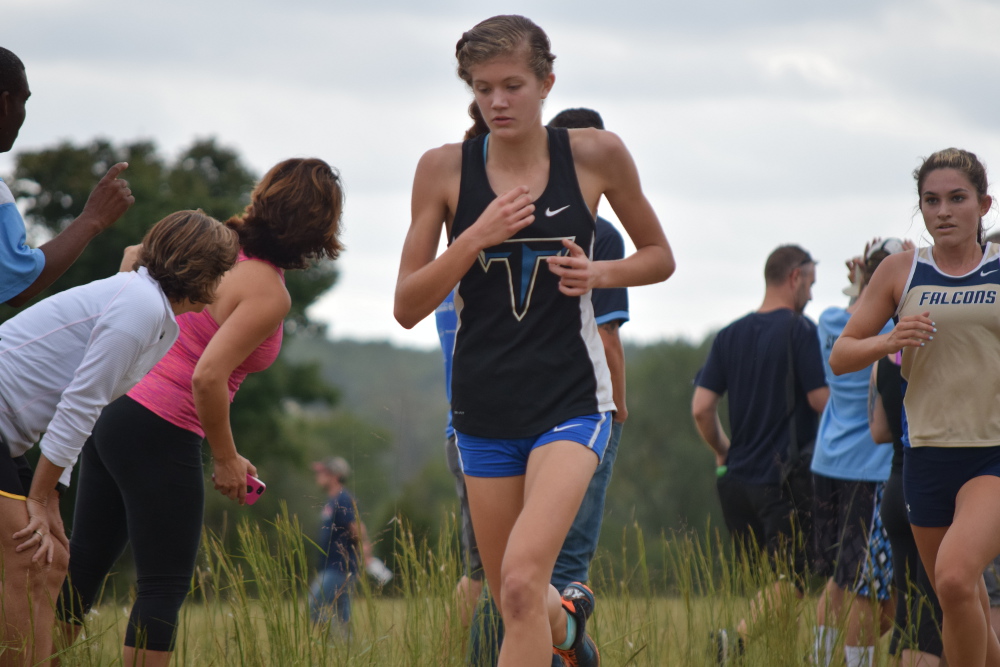Loudoun County, Va. — After high school coaches, external recruiters and social media bridge the gap between high school student-athlete and college coaches, the recruit and coach must work together to build a relationship and, ultimately, decide if both sides are a good fit for each other. For college coaches in the social media age, the first step in making the final decision is often pre-screening the student-athlete on Twitter to find out if the recruit has the attitude, the character and the personality to fit in with the team’s current chemistry and model.
Twitter makes the initial screening easier for the college coaches of today than of the college coaches of the handwritten-letter days, but college coaches are using Twitter for more than just the initial pre-screen. College coaches are using Twitter to market themselves, to build relationships with recruits and recruiters and to athletically dooce prospective student-athletes who continue to post red flags.
College Coaches Join Twitter to Market Teams
According to the four college coaches interviewed during this research, a relatively new addition to the job descriptions for college coaches is the ability to effectively communicate with the media and prospective student-athletes online. Since the start of collegiate athletics in the United States, college coaches have had the duty to communicate with the media and recruits, but the way the three parties now communicate is much different than from years ago: it’s online and it’s instantaneous.
College Coaches Need A Single Self-Brand Online and Offline
Since college coaches are trying to sell their teams to a vast array of prospective student-athletes, they must self-present in a way that both attracts and honestly depicts who they are and what they believe in.
For example, if a coach appears to be a light-hearted, fun-loving role model online – always tweeting about family values – then screams and swears at his student-athletes on the field, the word might get out that the coach puts on a face in front of his Twitter audience in order to maintain a positive image.
In talking to college coaches, however, they understand that if the positive self-presentation online, does not translate to a positive self-presentation offline, current and PSAs will be less likely to play for their teams. If recruits stop wanting to play for a coach, the university has an easy decision to find a new coach who student-athletes will want to play for. Maintaining a consistent self-brand could mean the difference between a college coach keeping his job and losing it.
Twitter Helps Speed Up the Recruitment Process
Twitter – and video recruiting services such as Hudl – allows college coaches to speed up the recruitment of prospective student-athletes. Where then-athletes had to send college coaches VHS tapes or DVDs of their highlights through the mail, now-athletes can simply direct message college coaches links to YouTube or Hudl videos on Twitter.
Twitter gives coaches access to more student-athletes at a cheaper price. They can connect with PSAs from all around the country, quickly view their film and either remove them from his recruitment list or add them to the top of it. College coaches no longer have to keep their recruits waiting for answers.
However, from a negative standpoint, Twitter means coaches get an influx of messages from many more recruits than in the past, so they have to sift through more video and Twitter streams to see if a PSA is worth recruiting. While Twitter speeds up the process for each individual athlete, the overall process takes as long because there are just so many more recruits to look at.
Red Flags on Twitter Lead to Athletic Doocing
The sheer number of prospective student-athletes Twitter has added to college coaches’ recruiting lists every year is exactly why monitoring and screening self-presentation online is now such an integral step in the early recruitment process.
Tweets with gossip, trash-talk, foul language or drugs and alcohol references send up red flags for most coaches around the United States. If student-athletes are willing to tweet offensive tweets and negatively self-present themselves online, there is little to do to stop them from ruining the reputation and representation of the coach, the university and the college’s community offline.
College Coaches Should Prefer Education over Athletic Doocing
Some coaches athletically dooce recruits for repeated offenses of “derogatory” tweets including references deemed racist or illegal, but more often than not they aim to educate the PSAs rather than athletically dooce them.
In 2015, a student-athlete from West Virginia tweeted that he had committed to play for a coach and, for example purposes, the Tigers. But in fact, he had committed to play for, for example purposes, the Lions. The tweet was in no way derogatory, but was a poor representation of the university and the football team. The coach had signed a student-athlete who did not even know the name of the school’s mascot.
Rather than athletically doocing the student-athlete, the coach called him and explained the mistake to him. The student-athlete – who was embarrassed – immediately deleted the tweet about playing for the Tigers and crafted a new tweet about playing for the Lions. While the student-athlete self-presented himself as ignorant of the university and football team mascot, it was something the coach and the student-athlete could explain to the media, the athletic department and the donors as a simple mistake. The recruit learned from his mistake, but if the coach had decided to athletically dooce the recruit, he might have made the same mistake in the future with a new school and lost an opportunity to get a university education.
If you want to join the conversation, use #SocialMediaRecruits on Twitter or Facebook.
This blog is the fourth of a five-part series on the effect of social media on the recruitment of high school student-athletes. While the series hopes to explain certain aspects of social media use in college recruitment, it is not an inclusive study of everything everyone must know about the process and issues faced in online recruiting:



